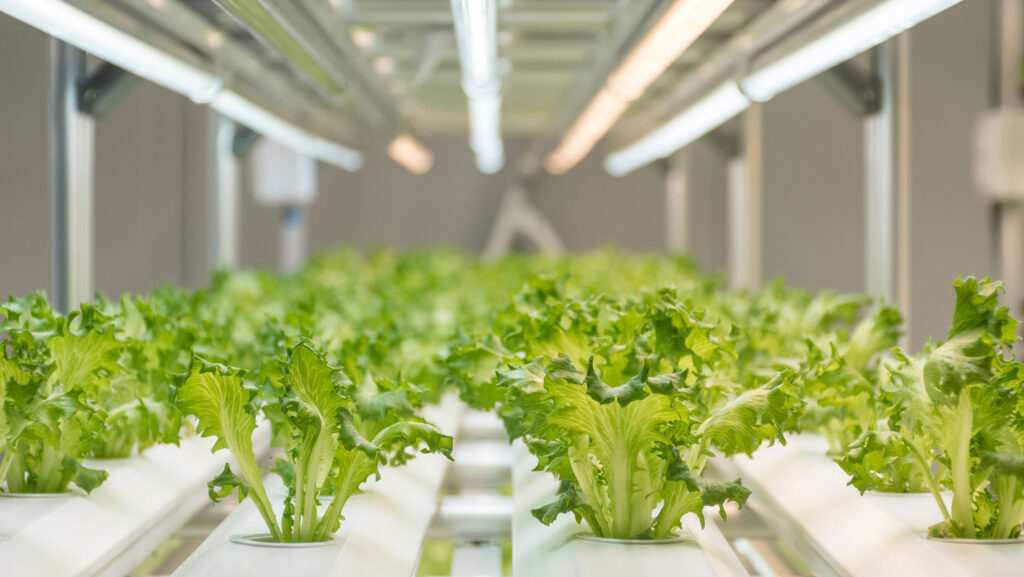Vertical farming’s climate cost outweighs gains
 © Adobe Stock
© Adobe Stock A new study has found that while vertical farming can greatly boost lettuce yields and reduce water use, its overall carbon footprint remains higher than traditional field farming.
The study led by the University of Surrey is the first to fully account for soil emissions from field farming and compare them with a UK-based commercial vertical farm.
Researchers examined two UK farms – one on mineral soil, one on peat – and a Spanish supplier, which collectively represent the bulk of the UK’s lettuce production, against a vertical farming system.
See also: Vertical farms offer solution to fruit and veg shortages
Vertical farms were shown to produce more than 20 times the yield of field farms – about 97kg/sq m compared to 3.3kg.
Water use was also significantly lower, with vertical farms using 0.9cu m of water per kilo of lettuce, compared to up to 7.3cu m per kilo on Spanish farms.
However, vertically farmed lettuce generated around 0.93kg of greenhouse gas emissions per kilo produced, compared to 0.57kg for UK field-grown lettuce – even when powered by renewable electricity.
Michael Gargaro, lead author and postgraduate researcher at the University of Surrey’s Centre for Environment and Sustainability, said:
“Vertical farming has the potential to transform food security in the UK, particularly as climate change and seasonal drought place growing pressure on traditional agriculture.
“Our research shows that while the technology can bring far higher yields and reduce water use, it currently comes with a higher carbon cost.”
Much of this impact stems from high energy requirements and the use of jute fibre plugs to grow crops.
Researchers found that switching to alternatives such as coconut coir could reduce the land footprint of vertical farms by more than 95%.
Dr Zoe M Harris, co-author and director of the university’s Centre for Environment and Sustainability, added:
“To viably compete with field farming, vertical farms must cut their energy use and rethink the materials they rely on.”
